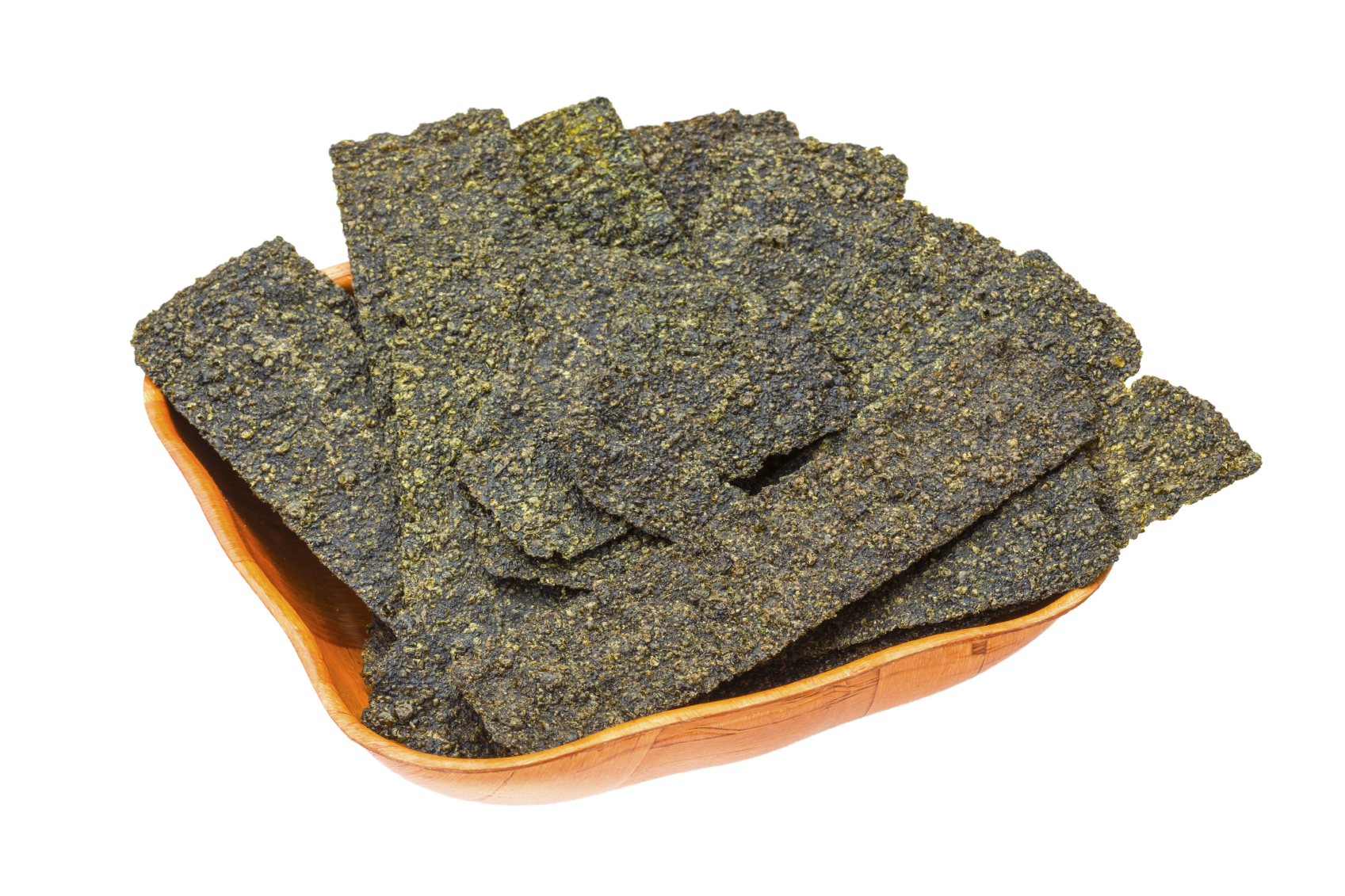Seaweed may not be the most appealing—or easy to find—food you’ll ever eat. But eating it comes with some big-time health benefits.
Here are five reasons to start eating seaweed:
1. Aids Weight Loss: Unlike its red and green cousins, brown seaweed contains a unique compound—fucoxanthin. It gives brown seaweed its color and helps with photosynthesis. But it may also help you burn body fat.
A Japanese study found that the fucoxanthin in wakame—a type of brown seaweed—helped mice reduce body fat. In fact, by the end of the study, it helped them lose 10% of their body weight.1 The antioxidant power of fucoxanthin may have also been responsible for preventing liver damage in these same mice.2
2. Fights Lymphoma: We’ve told you before that another compound in brown seaweed, fucoidan, may help fight lymphoma. It helps prevent the growth of cancer cells while helping preserve normal cells. Research shows that fucoidan’s power may come from its ability to promote cell death in the right places.
One study found that in addition to stopping cancer cells from growing, it caused the cancerous cells to kill themselves. That’s pretty impressive by itself. But its antioxidant activity may also stimulate the immune system and support white blood cells. This helps protect against cell damage and inflammation.3
3. Supports Thyroid: Your thyroid helps control how you use energy. It also determines how you respond to hormones in your body. If your thyroid isn’t working properly, not having enough energy may be the least of your problems… But eating seaweed can help to support optimal thyroid health.
Seaweed—especially kelp—is rich in iodine. It’s a substance that your body needs but doesn’t produce naturally. Without it, your thyroid won’t be able to produce enough thyroid hormone. This can lead to hypothyroidism and even goiter. And it’s more common than you may think—about 40% of the world’s population is at risk for iodine deficiency.4 Just remember thyroid health is about balance: Too much iodine can actually lead to an overactive thyroid—hyperthyroidism. Be sure to get your iodine from natural sources like kelp or seaweed extracts.
4. Prevents Breast Cancer: In general, women in Japan have a lower risk of breast cancer. But when they move to the U.S., the risk evens out within a generation or two. This means the advantage doesn’t come from genetics. It may come from their diet.5
The potent antioxidant activity of seaweed may help prevent cancer from forming… But in the case of breast cancer, it may also help stop tumor growth. Researchers in one study induced cancerous breast tumors in rats. They found that red seaweed extract was 27% more effective than tamoxifen—a toxic cancer drug—at suppressing the tumors. And unlike tamoxifen, the seaweed extract—even at much higher levels—caused little damage to the kidneys and liver.
5. Promotes Heart Health: Seaweed—especially the Irish varieties—is rich in healthful fatty acids.6 They help decrease inflammation and lower your risk for heart disease. But it’s not just the fats that help protect your heart. Most seaweed is also rich in fiber. Eating it can help you avoid heart disease.7 It can even help you live longer after a heart attack.
The protein in seaweed is also high in bioactive peptides—like the ones found in some fermented milk products.8 Their ability to lower blood pressure rivals popular ACE inhibitors.9 In other words, eating seaweed provides you with the protein, fiber, and fat your heart needs to continue working at its best.
It may take a while to get used to eating seaweed… But it’s an adjustment worth making. Though it’s not easy to find outside of sushi bars in the U.S., it’s not impossible. You can find dried organic seaweed online and in health food stores. There’s also a wide variety of natural seaweed extract supplements to choose from.
Like this Article? Forward this article here or Share on Facebook.
References:
1http://phys.org/news77201733.html
2http://pubs.acs.org/doi/abs/10.1021/jf104643b
3http://www.cancercenter.com/discussions/blog/fucoidan-may-help-fight-cancer-but-research-is-still-early
4http://www.thyroid.org/iodine-deficiency/
5http://www.cancer.org/treatment/treatmentsandsideeffects/complementaryandalternativemedicine/dietandnutrition/sea-vegetables
6http://www.sciencedaily.com/releases/2011/09/110913184059.htm
7http://www.bmj.com/content/347/bmj.f6879
8http://www.ncbi.nlm.nih.gov/pubmed/23621727
9http://www.sciencedaily.com/releases/2011/07/110720142346.htm

